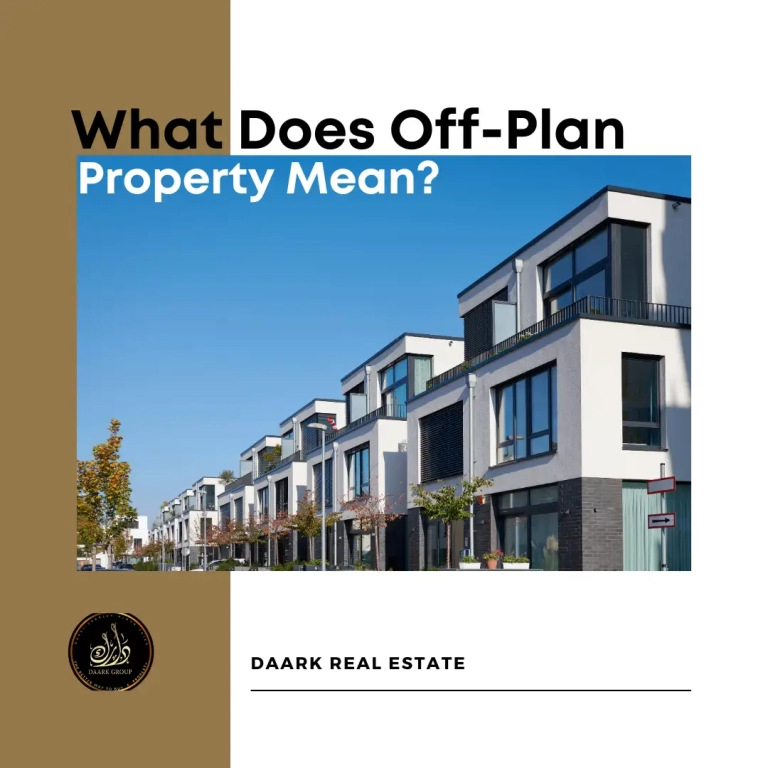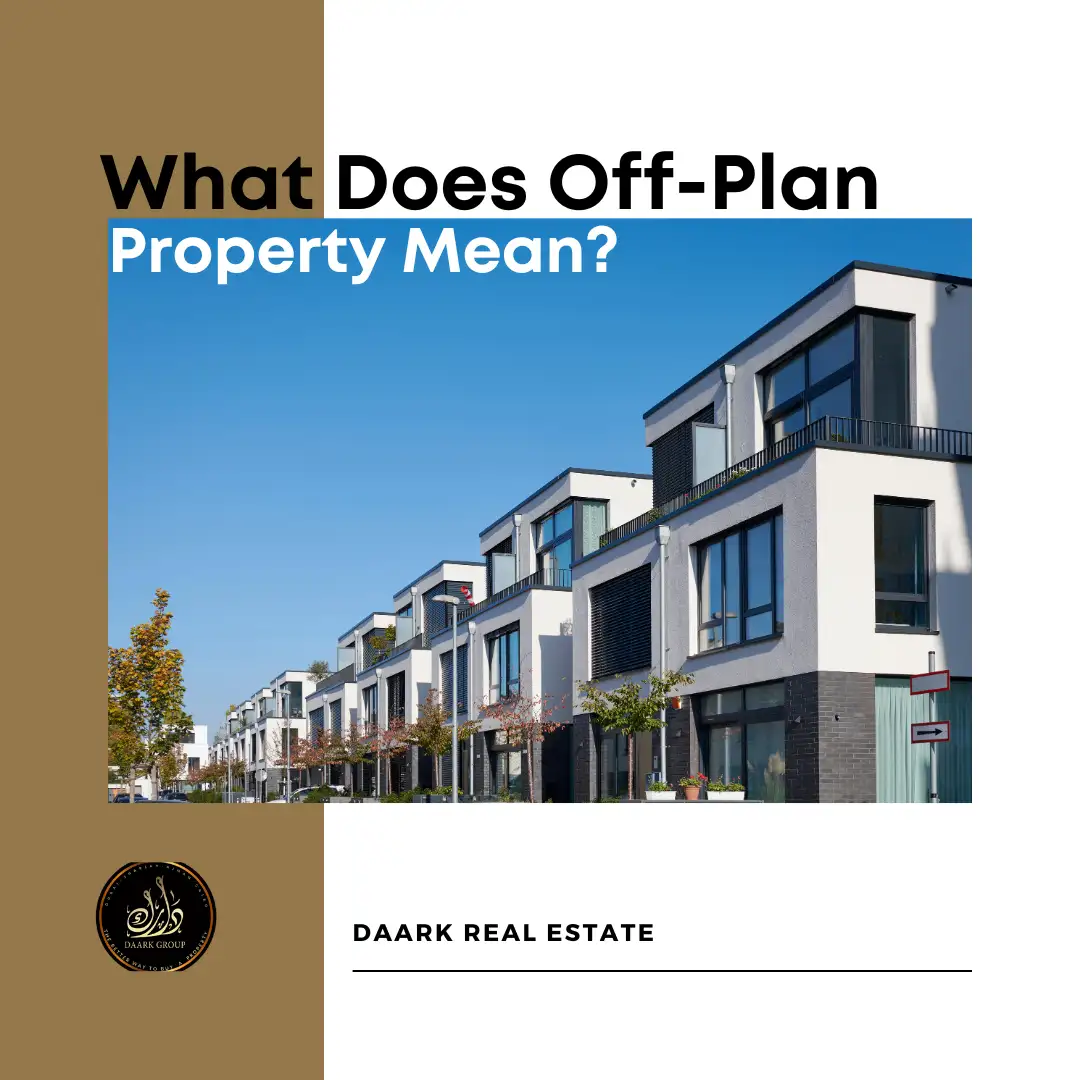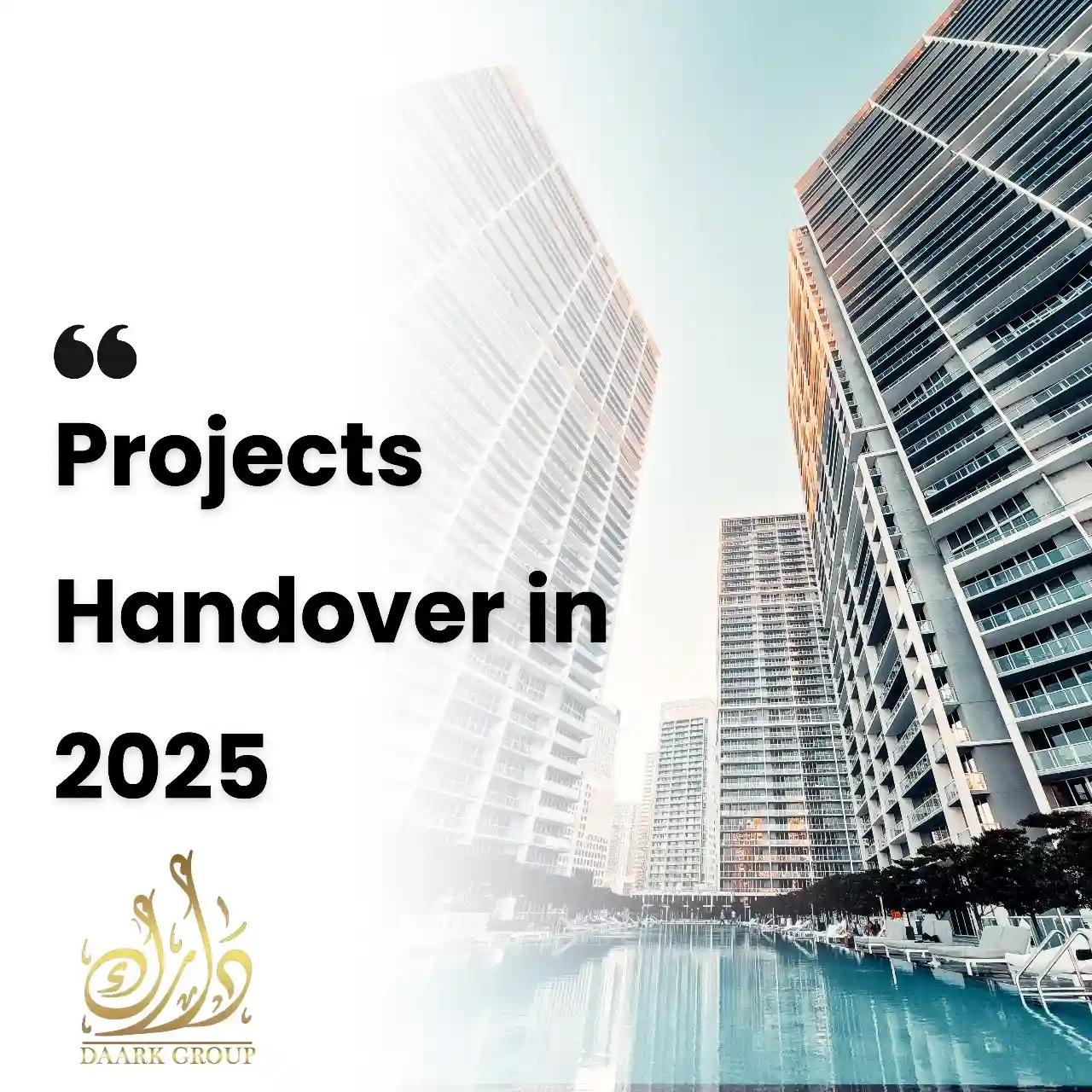what does off plan mean, Advantages, and Selection Tips
If we want to know what does off plan mean?, Off-plan properties in the UAE are considered one of the most attractive investment options in the rapidly growing real estate market. In this article, we will explore What Does Off-Plan property mean , their pros and cons , We’ll also guide you on how to choose the right off-plan property for your investment needs.

Off-Plan Properties in the UAE ,what does off plan mean
Off-plan property refers to real estate that is purchased before it has been constructed or completed. When purchasing off-plan, investors are essentially purchasing a property based on architectural plans, 3D renderings, and the developer’s vision.
Explore our weybridge gardens 2 dubailand and discover opportunities for lucrative real estate investments before completion.
Key points about off-plan properties
– Buyers purchase based on plans and specifications
– Construction may not have started or may be in progress.
– Completion date is set in the future
– Payments are a great deal successful in installments as construction Progresses
Pros and Cons of Buying Off-Plan Property
When considering what does off plan property means for your investment strategy, consider these advantages
Pros of Buying Off-Plan Property
1. Lower Prices:
Off-plan properties are often priced lower than completed properties, allowing investors to enter the market at a more affordable rate.
2. Payment Plans:
Developers typically offer attractive payment plans, sometimes extending beyond the completion date, making it easier for buyers to manage their finances.
3. Customization Options:
Buyers may have the opportunity to customize certain aspects of the property, such as finishes or layout, depending on the developer’s flexibility.
4. Potential for Capital Appreciation:
As construction progresses, the property’s value may increase, offering the potential for capital gains even before completion.
5. First-Mover Advantage :
Buyers can often cherry-pick the best units in a new development, securing prime locations within the project.
6. Tax Benefits:
In the UAE, there are no property taxes, and rental income is tax-free, making off-plan investments particularly attractive.
Al Thuraya Island that have delivered strong returns and met investor expectations.
Cons of Buying Off-Plan Property
To fully understand what off plan property means, it’s important to be aware of potential drawbacks
1. Construction Delays:
Projects may face delays, affecting the expected completion date and potential returns.
2. Market Fluctuations:
The property market may change between purchase and completion, potentially affecting the investment’s value.
3. Difficulty Visualizing:
It can be challenging to truly understand the final product based solely on plans and renderings.
4. Limited Immediate Returns:
Unlike completed properties, off-plan investments don’t generate immediate rental income.
5. Potential for Changes:
The final product may differ slightly from the initial plans due to necessary adjustments during construction.
Risks in purchasing Off-Plan Property
1. Developer Credibility:
The success of the project heavily depends on the developer’s reputation and financial stability.
2. Project Cancellation:
In rare cases, projects may be cancelled, leading to potential losses or delayed refunds.
3. Quality Issues:
The finished property may not meet the expected quality standards.
4. Oversupply Risks:
Rapid development in certain areas may lead to an oversupply, potentially affecting property values and rental yields.
5. Legal and Regulatory Changes:
Changes in real estate laws or regulations during the construction period may impact the investment.
6. Financial Risks:
Buyers must be prepared for potential changes in their financial situation over the payment period.
How to Choose the Right Off-Plan Property
After understanding What Does Off Plan property mean , we will now explore how to choose right one. Selecting the right off-plan property is crucial for a successful investment. Here are key factors to consider and steps to take :
1. Research the Developer
– Check the developer’s track record and reputation
– Look at their completed projects and delivery times
– Verify their financial stability and market presence
2. Location Analysis
– Assess the current and future development plans for the area
– Check proximity to key amenities (schools, hospitals, shopping centers)
– Consider transportation links and upcoming infrastructure projects
3. Project Details
– Examine the project’s master plan and proposed facilities
– Check the quality of materials and finishes promised
– Understand the timeline for completion and phased delivery (if applicable)
4. Legal Due Diligence
– Ensure the project is registered with RERA (Real Estate Regulatory Agency)
– Verify that the developer has an escrow account for the project
– Review the Sale and Purchase Agreement (SPA) carefully, preferably with a legal expert
5. Financial Considerations
– Compare prices with similar properties in the area
– Understand the payment plan and assess if it aligns with your financial situation
– Factor in additional costs like registration fees, service charges, and potential mortgage costs
6. Market Potential
– Research current market trends and future projections for the area
– Consider potential for capital appreciation and rental yields
– Assess the supply and demand dynamics in the chosen location
7. Visit the Sales Center and Show Home
– Get a feel for the property through model apartments or virtual tours
– Ask detailed questions about layouts, sizes, and customization options
– Understand what is included in the price and what are additional costs
8. Understand the Guarantees and Warranties
– Check what guarantees are offered for completion dates
– Understand the warranty period for the property after completion
– Know your rights and the complaint process if issues arise
9. Consider Your Personal Needs
– If buying to live in, ensure the property meets your lifestyle requirements
– If investing, consider ease of renting and property management options
10. Seek Professional Advice
– Consult with real estate agents familiar with off-plan properties
– Get advice from financial advisors on investment potential
– Consider hiring a lawyer to review all documents
11. Compare Multiple Options
– Don’t rush into the first appealing offer
– Compare several properties and developers before making a decision
12. Plan for the Future
– Consider potential changes in your personal or financial situation
– Think about long-term plans for the property (living, renting, reselling).
By thoroughly considering these factors, you’ll gain a comprehensive understanding of what does off plan property mean in practical terms. Remember, what does off plan property mean can vary slightly depending on the specific project and developer, so always do your due diligence.
Ultimately, knowing what does off plan property mean and how to choose the right one can lead to a potentially lucrative investment in the UAE real estate market.
Secure Your Future with Daark Properties
At Daark , we offer an exclusive selection of properties across the UAE, designed to meet both your lifestyle and investment needs. Whether you’re looking for prime locations, flexible payment plans, or long-term capital appreciation, our portfolio includes some of the most successful real estate projects in the region. Don’t miss the opportunity to secure your next investment before completion. Contact us today to learn more and let our team guide you through the process. Act now and take the first step toward owning a prime property in the UAE real estate market .
FAQS :
What is the opposite of off-plan?
The opposite of off-plan is “completed” or “ready” properties, which are fully constructed and available for immediate occupancy.
Is buying off-plan in Dubai risky?
Yes, buying off-plan can be risky due to potential construction delays, market fluctuations, and the uncertainty of the final product compared to initial plans.
Can foreigners buy property in the UAE?
Yes, foreigners can buy property in the UAE, especially in designated freehold areas where non-UAE nationals can own real estate outright.
Can you own 100% property in Dubai?
Yes, in Dubai, foreigners can own 100% of properties in designated freehold areas, allowing full ownership rights without the need for a local partner.






